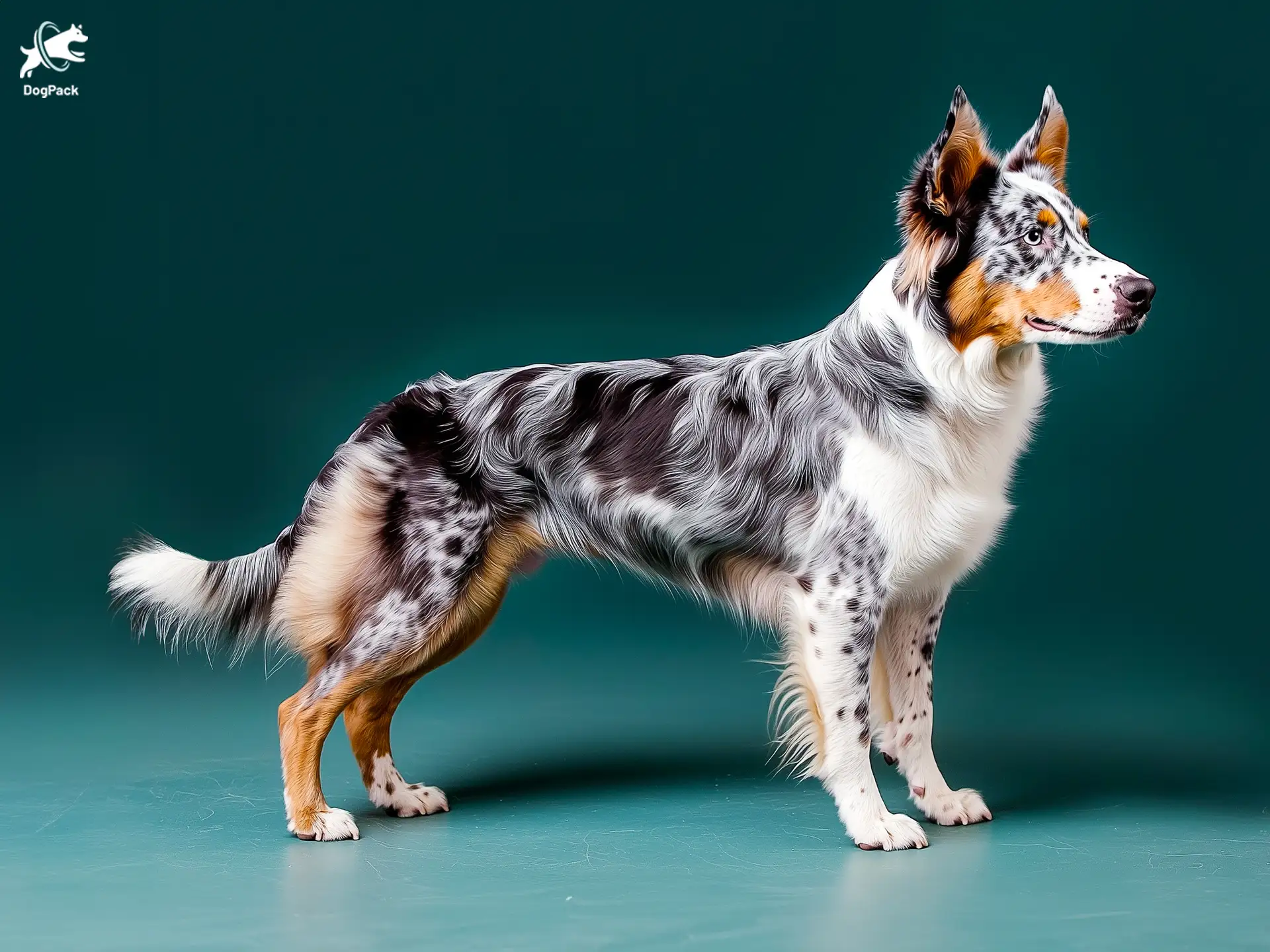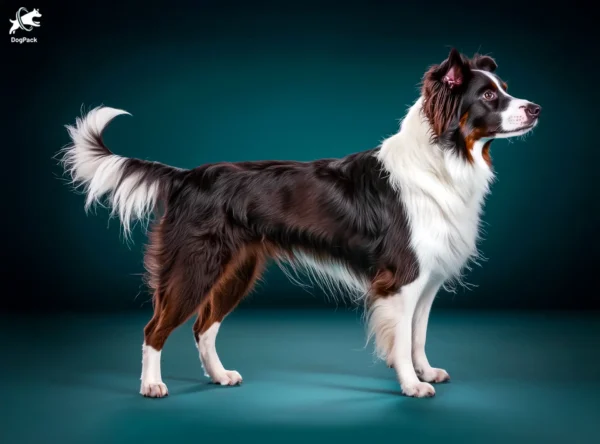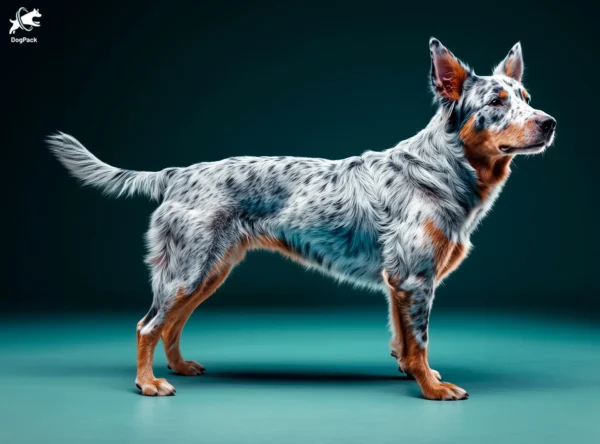Australian Koolie Dog Breed Info & Overview
The Australian Koolie is a dynamic, hardworking breed that thrives on physical and mental challenges. Bred in Australia for herding livestock across rugged terrain, this versatile dog is known for its sharp intelligence and unmatched agility. With boundless energy and a loyal, friendly disposition, Koolies make excellent working dogs as well as devoted companions for active families who enjoy adventure and outdoor pursuits.
Characteristics
Pictures
Breed History
The Australian Koolie traces its roots back to the early 19th century when European settlers brought herding dogs to Australia. These dogs were crossbred with local canines to create a breed well-suited for the rugged Australian terrain. The Koolie quickly became indispensable for managing livestock on expansive farms.
Over time, the Koolie’s exceptional herding abilities made them a favorite among Australian farmers. Their name is believed to derive from the German word “coolie,” reflecting their ancestry linked to German working dogs. Despite their long history, the Koolie remains relatively unknown outside their homeland.
Today, the Koolie continues to excel in herding but has also made a name in canine sports like agility and search and rescue. Enthusiasts are working to preserve the breed’s lineage and promote their unique qualities worldwide. The Australian Koolie’s rich heritage is a testament to their adaptability and intelligence.
Temperament, Personality
Australian Koolies are renowned for their intelligence and eagerness to please, making them highly trainable companions. They possess a friendly and outgoing demeanor, often forming strong bonds with their human families. Their natural herding instincts can make them protective, but proper socialization ensures they are well-mannered with strangers.
When it comes to children, Koolies are generally gentle and affectionate, especially with older kids who can match their energy levels. Their playful nature makes them great playmates, but supervision is recommended with younger children due to the dog’s exuberance. The Koolie’s herding tendencies may lead them to try to “round up” family members.
With other pets, the Koolie can coexist peacefully if introduced properly. Early socialization is key to curbing any excessive herding or chasing behaviors towards smaller animals. Their friendly disposition often extends to other dogs, making them suitable for multi-dog households as long as they receive adequate attention and stimulation.
Physical Characteristics
The Australian Koolie is a medium-sized dog, typically standing between 16 to 24 inches tall and weighing 30 to 55 pounds. They have a well-proportioned, athletic build that reflects their working heritage. Their agility and endurance are evident in their lean, muscular physique.
One of the most striking features of the Koolie is their diverse coat colors and patterns. Coats can be short or medium in length, often appearing in merle patterns of blue or red, solid colors, or combinations with white markings. Their eyes can be brown, blue, or even one of each, adding to their unique appearance.
The Koolie’s ears are typically medium-sized and can be pricked, semi-pricked, or floppy, contributing to their expressive faces. Their tails are usually long and may be naturally bobbed in some individuals. Overall, the Australian Koolie’s appearance is as varied as it is distinctive, reflecting a breed shaped by function over form.
Health Issues
The Australian Koolie is generally a healthy breed with a lifespan of 12 to 15 years. However, they can be prone to certain genetic health issues. One primary concern is Collie Eye Anomaly (CEA), a hereditary condition affecting the eyes, which can lead to vision impairment.
Another health consideration is hip dysplasia, a common issue in active breeds that can cause discomfort and mobility problems. Regular veterinary check-ups and screening for genetic conditions are essential to maintain the Koolie’s health. Responsible breeding practices help reduce the incidence of these hereditary issues.
Deafness, particularly in merle-colored Koolies, is another potential concern due to the genetics associated with their coat patterns. Prospective owners should consider health-tested puppies and be aware of these risks. Providing a balanced diet, regular exercise, and preventive care will contribute to the Australian Koolie’s overall well-being.
Grooming Needs
The Australian Koolie’s grooming needs are relatively low to moderate, making them a manageable breed in terms of coat care. Their short to medium-length coats shed moderately throughout the year, with heavier shedding during seasonal changes. Regular brushing once or twice a week helps keep their coat healthy and reduces loose hair around the home.
Bathing the Koolie is only necessary when they become particularly dirty or start to develop an odor. Over-bathing can strip the natural oils from their coat, so it’s best to keep baths occasional. Routine care should also include regular nail trimming, ear checks, and teeth brushing to maintain overall hygiene.
Due to their active nature, Koolies may be prone to minor cuts or abrasions, so it’s important to check them over after vigorous outdoor activities. Their paws should be inspected regularly, especially if they spend time on rough terrain. Overall, the Australian Koolie’s grooming routine is straightforward, allowing more time for play and exercise.
Exercise Requirements
Australian Koolies are high-energy dogs that require ample physical and mental stimulation. They thrive on at least 1 to 2 hours of vigorous exercise each day. Without sufficient activity, they may become bored and potentially develop destructive behaviors due to their working dog heritage.
Ideal activities for the Koolie include long walks, runs, hiking, and interactive play sessions. They excel in canine sports such as agility, flyball, and obedience trials, which provide both physical exercise and mental challenges. These activities tap into their natural athleticism and intelligence.
In addition to physical exercise, the Koolie benefits from tasks that engage their mind. Puzzle toys, training sessions, and herding activities can keep them mentally sharp. Owners who can provide a job or purpose for the Australian Koolie will find them to be content and well-adjusted companions.
Training Tips
The Australian Koolie’s intelligence and eagerness to please make them highly trainable. Positive reinforcement methods work best, as they respond enthusiastically to praise and rewards. Early training and socialization are crucial to harness their energy and channel it into desirable behaviors.
Given their herding instincts, Koolies may exhibit nipping or chasing behaviors. Consistent training can help mitigate these tendencies. Incorporating herding commands or activities into their routine can provide an appropriate outlet for these instincts. Patience and consistency are key in addressing any breed-specific challenges.
Variety in training keeps the Koolie engaged, as they can become bored with repetitive tasks. Introducing new commands, tricks, or obstacle courses can maintain their interest. Owners who invest time in training will be rewarded with a well-mannered and obedient Australian Koolie.
Nutrition, Diet
Due to their high energy levels, the Australian Koolie requires a nutrient-rich diet to support their active lifestyle. A high-quality dog food formulated for medium-sized, active breeds is recommended. Protein is essential for muscle maintenance, so look for foods where real meat is the primary ingredient.
Portion sizes should be tailored to the Koolie’s age, weight, and activity level. On average, they may consume between 2 to 3 cups of dry food per day, divided into two meals to aid digestion and energy distribution. Monitoring their weight and adjusting portions accordingly helps prevent obesity.
Some Koolies may have sensitivities to certain grains or additives, so owners should be attentive to any signs of allergies or digestive issues. Incorporating omega-3 fatty acids can promote a healthy coat and skin. Always provide access to fresh water, especially after exercise, to keep your Australian Koolie hydrated.
Adoption, Breeders
Finding an Australian Koolie may require some research, especially outside of Australia. Prospective owners should seek out reputable breeders who prioritize health and temperament. The Koolie Club of Australia is an excellent resource for information on the breed and can assist in locating responsible breeders.
For those interested in adoption, contacting breed-specific rescue organizations can be a rewarding option. The Australian Koolie Rescue group often has Koolies in need of loving homes. Networking within dog enthusiast communities and attending herding events may also lead to adoption opportunities.
When considering a breeder, it’s important to ask about health screenings for genetic conditions common in Koolies. Visiting the breeder to meet the puppy’s parents and observe their environment ensures you’re getting a healthy, well-socialized Australian Koolie. Patience and due diligence will lead to a positive experience in bringing home your new companion.
Family Pet?
The Australian Koolie can make an excellent family pet for active households. Their affectionate and loyal nature allows them to form strong bonds with family members. They thrive in environments where they are included in daily activities and receive plenty of attention.
Koolies are generally good with children, especially if raised alongside them. Their high energy levels mean they enjoy playtime but may be better suited to families with older kids who understand how to interact with a lively dog. Supervision is advised to ensure positive interactions.
With proper socialization, Koolies can get along with other pets in the household. Their herding instincts might lead them to chase smaller animals, so introductions should be managed carefully. An Australian Koolie in a family setting will flourish when their physical and mental needs are met.
Right For You?
If you’re an active individual or family seeking a loyal and intelligent companion, the Australian Koolie might be the perfect match. They require ample exercise and mental stimulation, so they’re ideal for owners who enjoy outdoor activities and have the time to dedicate to their dog.
Living in a rural or suburban setting with space for the Koolie to run is beneficial. Apartment living may not be suitable unless the owner is committed to providing sufficient daily exercise. Their adaptability and trainability make them versatile, but their energy levels are not for the faint-hearted.
Potential owners should consider the commitment required to keep a Koolie happy and healthy. If you’re willing to invest in training, exercise, and companionship, the Australian Koolie will reward you with unwavering loyalty and a joyful presence in your life.
Conclusion
Bringing an Australian Koolie into your life can be an incredibly rewarding experience for the right owner. Their intelligence, energy, and affectionate nature make them exceptional companions for those prepared to meet their needs. While they may not be the best fit for everyone, particularly first-time dog owners or those with a sedentary lifestyle, the Koolie thrives in active homes where they can be both mentally and physically engaged. If you’re looking for a devoted and energetic partner to share your adventures, the Australian Koolie might just be the perfect addition to your family.
FAQs
-
Are Australian Koolies good at dog sports?
Yes, Australian Koolies excel in dog sports like agility, flyball, and obedience trials. Their intelligence and high energy levels make them quick learners and enthusiastic participants in competitive canine activities.
-
Do Australian Koolies have a natural instinct for herding?
Australian Koolies possess a strong herding instinct, inherited from their working dog ancestors. They are adept at managing livestock and may even attempt to herd people or other pets if not properly trained.
-
How much does an Australian Koolie puppy cost?
The cost of an Australian Koolie puppy can vary, typically ranging from $500 to $1,500, depending on the breeder, lineage, and location. It’s important to purchase from reputable breeders who prioritize health and temperament.
-
Are Australian Koolies hypoallergenic dogs?
No, Australian Koolies are not considered hypoallergenic. They have a moderate shedding coat, which can produce dander that may trigger allergies in sensitive individuals.
-
Can Australian Koolies live in apartments?
While it’s possible, Australian Koolies are not ideally suited for apartment living due to their high energy needs. They thrive best in homes with ample space and access to outdoor areas where they can exercise freely.
Breed Ratings
The Australian Koolie is exceptionally intelligent, making them quick learners and highly trainable companions.
Koolies are very playful and enjoy engaging in interactive games and activities with their owners.
With boundless energy, the Koolie needs plenty of physical activity to remain content and well-behaved.
They shed a moderate amount, especially during seasonal changes, requiring regular brushing.
The breed has a strong prey drive due to their herding background, which may lead to chasing smaller animals.
Their grooming needs are minimal to moderate, making coat care relatively straightforward.
Australian Koolies are highly trainable, responding well to positive reinforcement techniques.
They prefer company and may become anxious or bored if left alone for extended periods.
Koolies may bark to alert their owners but are not typically excessive barkers.
They have minimal drooling, making them a clean breed in this aspect.
Generally friendly with other dogs when properly socialized from a young age.
The breed is generally healthy but can be prone to certain genetic conditions, so regular vet care is important.













